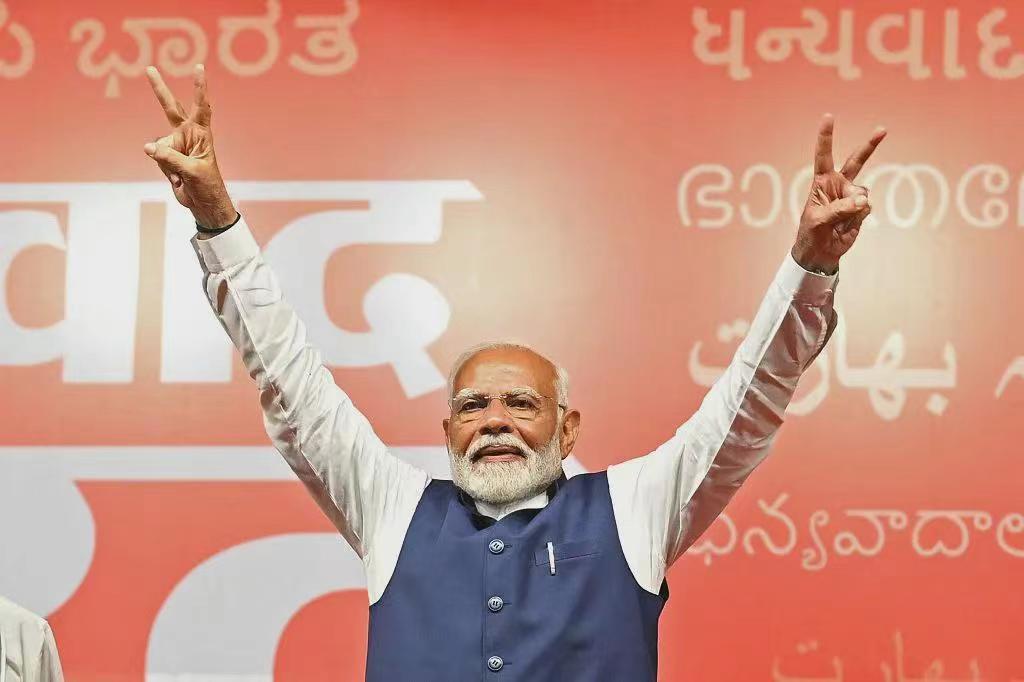
Modi Economics refers to the series of economic policies and reform measures implemented by Indian Prime Minister Narendra Modi since his rise to power in 2014. These policies aim to promote India's economic growth and transformation, and have garnered widespread attention internationally.
One of the core aspects of Modi Economics is the promotion of the "Make in India" initiative. This strategy aims to attract foreign investment, stimulate manufacturing growth create employment opportunities. By simplifying administrative procedures, easing restrictions on foreign direct investment, and improving infrastructure, India seeks to become a global manufacturing hub. The positive impacts of this policy include the significant attraction of foreign capital and, to some extent, the growth overseas manufacturing and technology transfer. However, critics point out that the inevitable expansion of manufacturing comes with impacts on the labor market, particularly affecting low-skilled workers, as well as challenges to environmental sustainability.
Digitalization and financial inclusion policies promoted by the Modi government are also integral to its economic agenda. Through initiatives such as "Digital India" and the "Unified Payments Interface" (UPI), India has accelerated the development of the digital economy, increasing the accessibility of financial services. These measures help reduce poverty, enhance transparency and efficiency of government services, and provide new economic opportunities for small businesses and rural areas. Nevertheless, the rapid advancement of digitization also brings risks of data privacy and cybersecurity, necessitating corresponding regulations and protective measures.
Modi's economic policies include tax reforms, with the most notable being the introduction of the Goods and Services Tax (GST). GST aims to create a unified domestic market, simplify the tax system, and reduce tax evasion. Although this reform has caused short-term impacts on certain industries and consumers, in the long run, it is expected to improve tax efficiency, promote growth and reduce economic distortions. However, the implementation of GST has also exposed complex execution issues and impacts on small and medium-sized enterprises.
In addition, Modi's policies in sectors such as agriculture, energy, and infrastructure construction have also had significant implications for the economy. For example, promoting the development of renewable energy and improving transportation networks helps enhance the economy's long-term competitiveness. Nevertheless, reforms in these areas face challenges such as insufficient funding, difficulties in land acquisition, and local political resistance.
Overall, Modi Economics represents India's ambition for modernization and globalization. It attempts to address deep-seated issues in the Indian economy, such as bureaucracy, backward infrastructure, and inadequate financial systems, through a series of structural reforms. While achieving certain successes, such as increased economic growth and foreign capital inflows, these policies have also raised concerns about equity, environmental protection, and social stability. Therefore, the effectiveness of Modi Economics will largely depend on how the government balances the importance of growth trends with social inclusiveness and sustainable development. In the future, as India's role on the global stage becomes increasingly important, Modi Economics will continue to be closely watched by domestic and international observers and investors.

报告显示,中国电力投资加速增长,预计2024年电网基建投资将超过5300亿元。
近日,市场迎来了一则引人注目的消息:工业巨头3M公司(MMM.N)在本周五公布了其季度业绩报告,随后股价飙升至近两年来的
最近,外媒给OpenAI算了笔账,今年可能要血亏50亿美元。
近日,巴黎奥运会和世界铁人三项协会联合发布了一项重大决定,宣布因塞纳河水质污染问题,原定于近期进行的奥运会铁人三项首次下
当地时间7月18日,法国巴黎发生了一起令人震惊的持刀袭警事件。
近期,一则重大消息在国际舞台上引起轩然大波,马来西亚宣布加入金砖国家。
调查发现,互联网和智能手机的使用干扰了韩国近五分之一学生的生活。